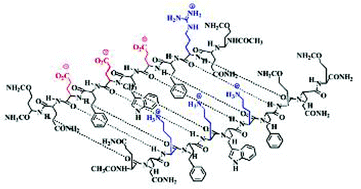Abstract
21st century industrial activities are faced with the challenge of sustainable development. The current state of affairs of the chemical industry as seen in its historical context offers a perspective for the future. The chemical industry developed in the 19th century from efforts to replace naturally occurring materials e.g. rubber and ivory. Revisiting nature for inspiration with today's far more advanced chemistry knowledge offers an abundance of opportunities for fundamental research as well as applied technology development with commercial perspectives. Beyond the covalent bond as practiced by synthetic petrochemistry for making a wealth of small-, oligo-, and macro-molecules there exists a vast area, barely explored, of bio-materials with seemingly endless structure-forming capability and functionality. These non-covalent, intermolecular forces working at several length and time scales define functional materials that may offer opportunities to


 Please wait while we load your content...
Please wait while we load your content...